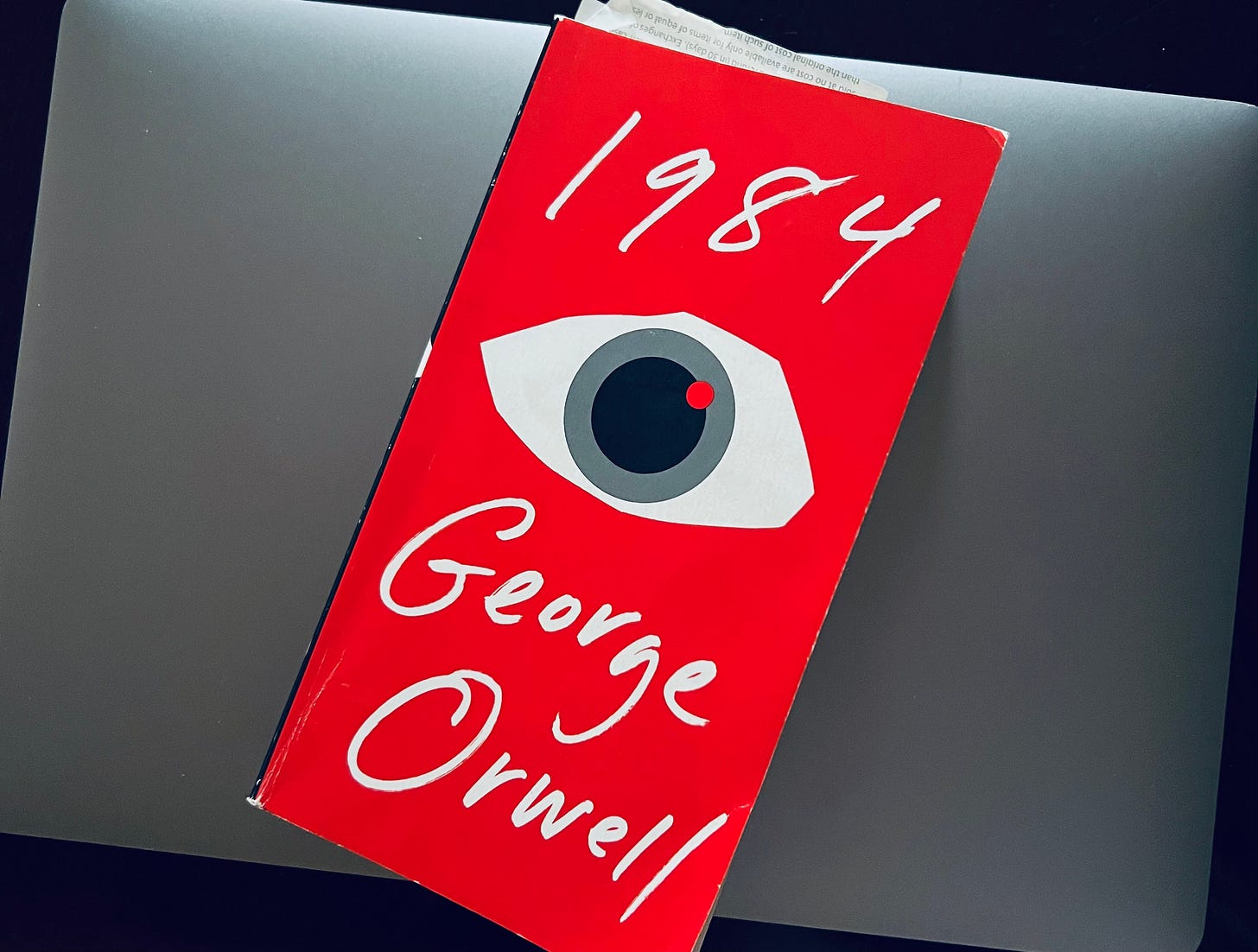Before the rats, the torture, the attempted brainwashing, the actual brainwashing, the Hate Week, the scandalous love affair, and long before Winston Smith — leading man of George Orwell's novel 1984 — can even think clearly, he grabs a pen and scrawls one line into a diary.
April 4th, 1984.
He pauses, then keeps writing. The events of the previous night, thrown down on paper as fast as possible: a movie, a loud crowd, a haze of fury and bullets.
This is Winston’s first act of rebellion.
He wants his mind back.
1984 includes a staggering amount of imaginative ideas. Why start the book with a hero cowering in the corner, scribbling out poorly structured sentences?
One possibility: George Orwell knew that Winston needed to discover a breathtaking truth, one that serves as a good reminder today:
Writing is your best chance at free thought.
When you write, you are free from propaganda and marketing, if only briefly. You can learn what you really believe, which is harder than it sounds.
Writing takes you further than thinking. Mental effort has limits. Consider the difficulty of calculating long division in your head. Imagine trying to use the same organ to unravel potential long-term problems with capitalism.
Writing also takes you further than speaking. It is difficult to advance a line of thought by simply talking out loud. And conversations? Conversations are only as intelligent as the people you have them with.
But writing. Writing! What freedom! What space!
Writing is you versus you. A conversation with self.
Writing is revolutionary not because of what it IS, but because of what it DOES.
Writing DOES offer you the ability to organize your thoughts, without interference, without time limits, and without the pressure of publicizing your work.
Paul Graham, programmer turned venture capitalist, takes the time to write essays. Why would he bother?
Vitalik Buterin, Ethereum founder, released a 36-page paper explaining the technology and his reason for building it. Why would he bother?
Erik Brynjolfsson, Stanford director of the Digital Economy Lab, composed a 4,476-word article on the current and future economic impacts of artificial intelligence. Why would he bother?
Schools require students to write papers. Why would they bother?
Recording your thoughts gives you a chance to affirm what you know, and reveal what you don’t. Fellow writer Taylor Foreman says it well: “when you write, you can’t lie to yourself.”
Your topic is irrelevant. You don’t have to write about venture capitalism or technology or (God forbid) making money online in order to benefit from writing. Writing can take the form of:
a moving tribute to an army of nurses,
a guide to thinking through purchases in a new way,
or a novella illustrating that you think life is kinda pointless.
Whether or not you press “publish” is irrelevant. Each of the examples in this post would have served the writer, even if the words had never seen the light of day.
Are there economic benefits to writing? Sure. Paul and Erik and Vitalik and my friend Taylor enjoy a certain level of notoriety because they publish work. Countless businesses generate leads through both long and short-form writing. However, those reasons are a pebble kicked aside on the way to writing’s meaningful mountaintop:
The point of writing is to advance your own beliefs.
The point of writing is to separate yourself from the popular narrative.
The point of writing is to think, freely.
Writing is not about challenging the status quo, per se. It's about refusing to blindly march behind those in power, those who gain from pointing your mind where they want it to go.
This type of introspection can lead to a scary, or even dangerous place.
That's what happened with Winston in 1984.
It's worth the risk, though, especially when you find yourself looking around and saying "I'm not quite sure the world is right."
Or, for the optimists:
"I think we can be better than this.”
Much love as always <3
-Todd B from Tennessee
P.S. You may be expecting an analysis of the writing in 1984. It’s coming. For now, enjoy this publication’s most popular release so far.




